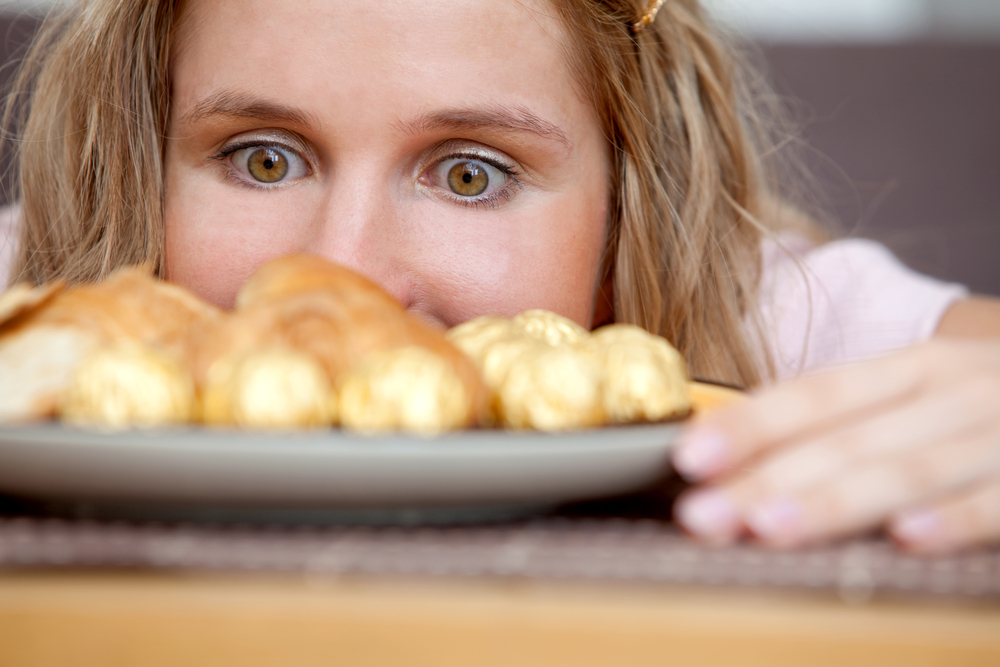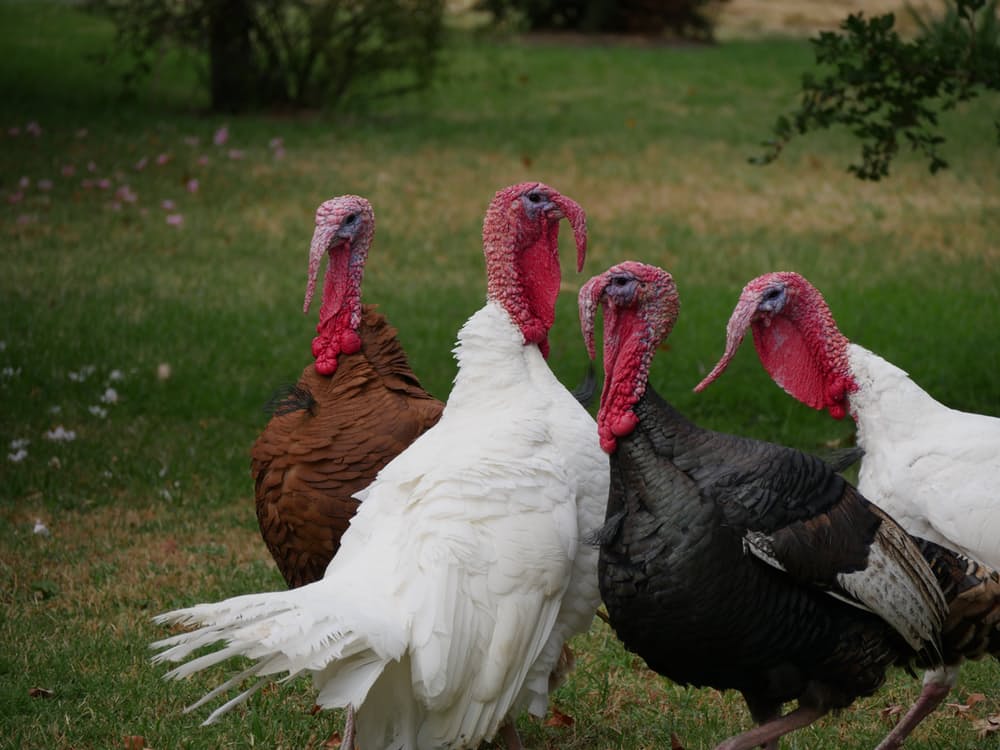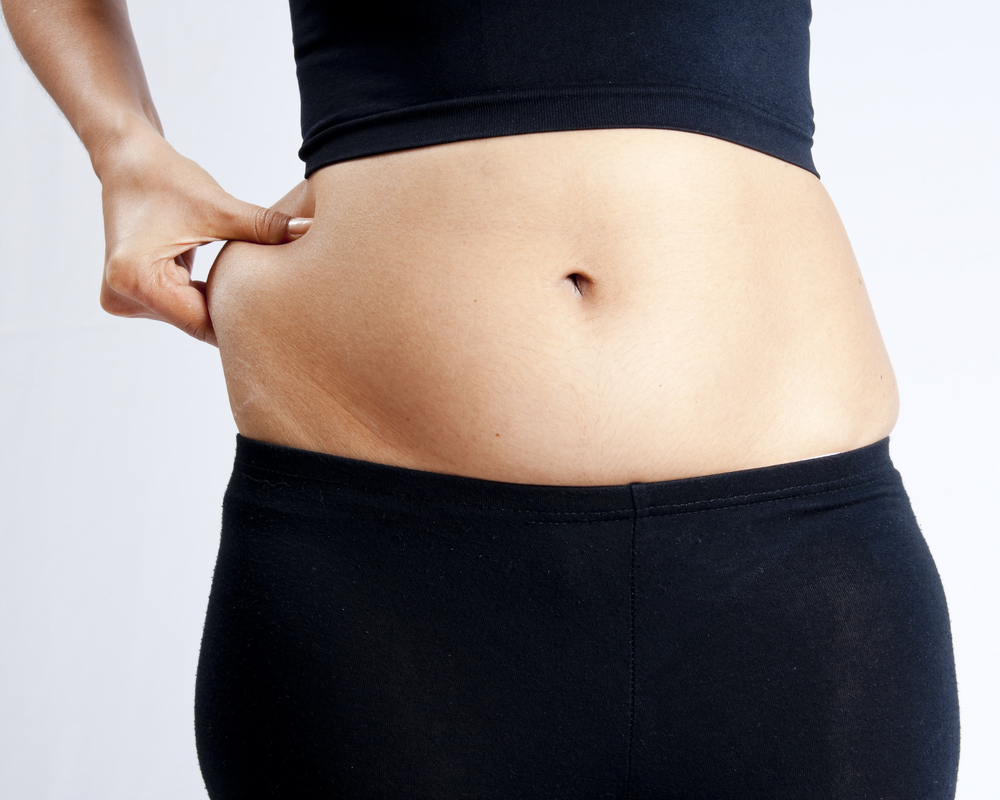Defrosting your turkey
If you buy a frozen turkey, make sure that the turkey is properly defrosted before cooking it. If it’s still partially frozen, it may not cook evenly, which means that harmful bacteria could survive the cooking process.
Defrosting should be done in the fridge if possible (or somewhere cool) and separated from touching other foods, with a container large enough to catch the defrosted juices. This is important to stop cross-contamination.
Defrosting checklist
Work out defrosting time in advance, so you know how much time to allow – it can take at least a couple of days for a large turkey to thaw.
When you start defrosting, take the turkey out of its packaging, put it on a large dish and cover. The dish will hold the liquid that comes out of the thawing turkey.
Remove the giblets and the neck as soon as possible to speed up the thawing process. Wash your hands thoroughly after handling raw turkey, giblets or any other raw meat.
Before cooking, make sure there aren’t any ice crystals in the cavity. Test the thicker parts of the turkey with a fork to tell whether the meat feels frozen.
Turkey (and any other poultry) is best defrosted in a covered dish at the bottom of the fridge so that it can’t drip onto other foods.
Pour away the liquid that comes out of the defrosting turkey regularly to stop it overflowing and spreading bacteria. Be careful not to splash the liquid onto worktops, dishes, cloths or other food.
Bear in mind what else is you have stored in the fridge. Cooked meats need to be covered and stored higher up.
If the bird is too big for the fridge, put it somewhere out of reach from animals and children where it won’t touch other foods. A cool room, shed or garage are all good places.
If you’re not using the fridge, watch out for sudden changes in room temperature, as they could prevent the turkey from thawing evenly.
Defrosting times
To work out the defrosting time for your turkey, check the packaging for any guidance first. If there aren’t any defrosting instructions, use the following times to work out roughly how long it will take to thaw your turkey.
in a fridge at 4ºC (39ºF), allow about 10 to 12 hours per kg, but remember that not all fridges will be this temperature
in a cool room (below 17.5ºC, 64ºF), allow approximately three to four hours per kg, or longer if the room is particularly cold
at room temperature (about 20ºC, 68ºF) allow approximately two hours per kg
When your turkey is fully defrosted, put it in the fridge until you’re ready to cook it. If this isn’t possible, make sure you cook it immediately.
Back to top
Preparing the turkey
Keep the uncooked turkey away from food that’s ready to eat. If raw poultry, or other raw meat, touches or drips onto these foods, bacteria will spread and may cause food poisoning.
Bacteria can spread from raw meat and poultry to worktops, chopping boards, dishes and utensils. To keep your Christmas food safe, remember the following things:
After touching raw poultry or other raw meat, always wash your hands with warm water and soap, and dry them thoroughly.
There’s no need to wash your turkey before your cook it. If you do, bacteria from raw poultry can splash onto worktops, dishes and other foods. Proper cooking will kill any bacteria.
Always clean worktops, chopping boards, dishes and utensils thoroughly after they have touched raw poultry or meat.
Never use the same chopping board for raw poultry or meat and ready-to-eat food without washing it thoroughly in warm soapy water first. If possible, use a separate chopping board just for raw meat and poultry.
Back to top
Cooking your tukey
Plan your cooking time in advance to make sure you get the bird in the oven early enough to cook it thoroughly. A large turkey can take several hours to cook properly. Eating undercooked turkey (or other poultry) could cause food poisoning.
Three ways you can tell a turkey is cooked:
the meat should be steaming hot all the way through
none of the meat should be pink when you cut into the thickest part of the bird
the juices should run clear when you pierce the turkey or press the thigh
If you’re using a temperature probe or food thermometer, ensure that the thickest part of the bird (between the breast and the thigh) reaches at least 70°C for two minutes.
Turkey cooking times
The cooking times below are based on an unstuffed bird. It’s better to cook your stuffing in a separate roasting tin, rather than inside the bird, so that it will cook more easily and the cooking guidelines will be more accurate.
If you cook your bird with the stuffing inside, you need to allow extra time for the stuffing and for the fact that it cooks more slowly.
Some ovens, such as fan-assisted ovens, might cook the bird more quickly – check the guidance on the packaging and the manufacturer’s handbook for your oven if you can.
As a general guide, in an oven preheated to 180ºC (350ºF, Gas Mark 4):
allow 45 minutes per kg plus 20 minutes for a turkey under 4.5kg
allow 40 minutes per kg for a turkey that’s between 4.5kg and 6.5kg
allow 35 minutes per kg for a turkey of more than 6.5kg
Cover your turkey with foil during cooking and uncover for the last 30 minutes to brown the skin. To stop the meat drying out, baste it every hour during cooking.
Cooking times for other birds
Other birds, such as goose and duck, need different cooking times and temperatures. The oven should always be hotter for duck and goose in order to melt the fat under the skin.
goose should be cooked in a preheated oven at 200ºC/425ºF/gas mark 7 for 35 minutes per kg
duck should be cooked in a preheated oven for 45 minutes per kg at 200ºC/400ºF/gas mark 6
chicken should be cooked in a preheated oven at 180ºC/350ºF/gas mark 4 for 45 minutes per kg plus 20 minutes
Back to top
Storing leftovers
Keep cooked meat and poultry in the fridge. If they are left out at room temperature, bacteria that causes food poisoning can grow and multiply.
After you’ve feasted on the turkey, cool any leftovers as quickly as possible (within one or two hours), cover them and put them in the fridge. Ideally, try to use up leftovers within 48 hours.
When you’re serving cold turkey, take out only as much as you’re going to use and put the rest back in the fridge. Don’t leave a plate of turkey or cold meats out all day, for example, on a buffet.bacteria
If you’re reheating leftover turkey or other food, always make sure it’s steaming hot all the way through before you eat it. Don’t reheat more than once. Ideally, use leftovers within 48 hours.
Find out more on storing food safely in our food hygiene section.



